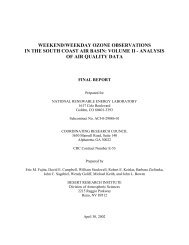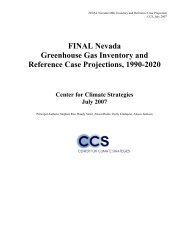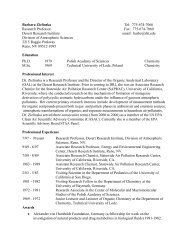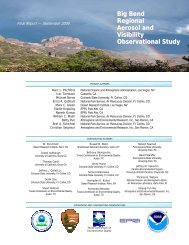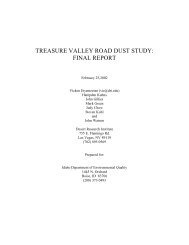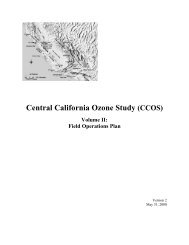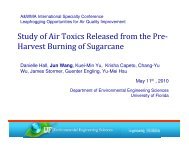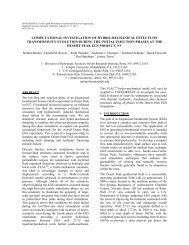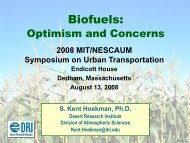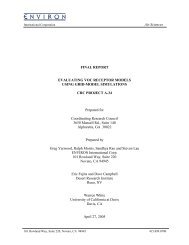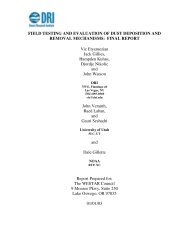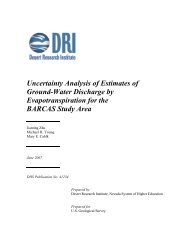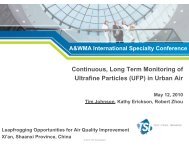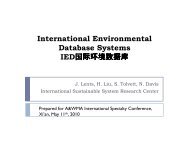Assessment of Conversion Technologies for Bioalcohol Fuel ...
Assessment of Conversion Technologies for Bioalcohol Fuel ...
Assessment of Conversion Technologies for Bioalcohol Fuel ...
Create successful ePaper yourself
Turn your PDF publications into a flip-book with our unique Google optimized e-Paper software.
In 2000, Arkenol entered into a cooperative agreement with JGC Corp. <strong>of</strong> Yokohama,<br />
Japan. With funding from the Japanese New Energy Development Organization<br />
(NEDO), JGC first constructed and operated a 2 tons-per-day pilot test <strong>of</strong> the Arkenol<br />
process <strong>for</strong> two years at JGC’s research center in Oharai, Japan, which demonstrated<br />
the ability <strong>of</strong> the Arkenol technology to produce fermentable sugars. This led to an<br />
expanded (up to 5 tons-per-day) pilot facility built and operated in conjunction with an<br />
existing conventional ethanol plant in Izumi Japan from 2002 to 2006. The Izumi pilot<br />
project involved a fully integrated demonstration <strong>of</strong> all Arkenol process components,<br />
producing ethanol <strong>for</strong> use in a Japanese government vehicle test program. Lignin<br />
combustion testing, involving 4 tons <strong>of</strong> lignin fuel, was also reportedly conducted.<br />
Among the biomass feedstock materials said to have been tested with the Arkenol<br />
process in the Japanese pilot projects are: rice straw, wheat straw, wood wastes,<br />
green wastes, MSW, paper, residuals from Materials Recovery Facilities (MRFs), and<br />
sugarcane bagasse.<br />
Future Development Plans–BlueFire has partnered with Waste Management, Inc.,<br />
a major U.S. waste management firm to develop plans <strong>for</strong> a series <strong>of</strong> projects<br />
intended to produce ethanol from urban green waste at the partner company’s landfil<br />
disposal sites. The first <strong>of</strong> these projects, planned <strong>for</strong> a Southern Cali<strong>for</strong>nia landfill site,<br />
would be designed to process 700 metric tons per day <strong>of</strong> material and produce 19<br />
million gallons <strong>of</strong> ethanol per year. In February 2007, Blue Fire was awarded a grant<br />
by the U.S. DOE <strong>for</strong> up to $40 million <strong>for</strong> this project. BlueFire is pursuing the<br />
remaining funding and selecting equipment vendors and engineering providers <strong>for</strong> this<br />
project and, subject to obtaining pending regulatory approvals, hopes to break ground<br />
in 2007. Further projects at additional MSW landfill sites and at other possible venues<br />
involving agricultural and <strong>for</strong>estry biomass feedstocks are also being explored. The<br />
Cali<strong>for</strong>nia Energy Commission awarded BlueFire a grant in April 2007 to support the<br />
company’s technology development.<br />
78



